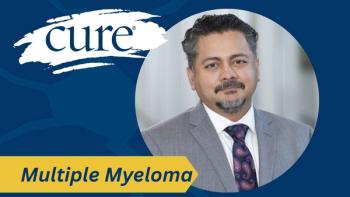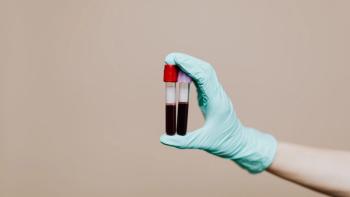
Myeloma Link: Empowering African Americans
Twenty-three years ago, I was diagnosed with chronic myeloid leukemia and given three years to live. I was a 37-year-old Army major with a wife and 5-year-old daughter who I wanted to see grow up. The only possible cure for my leukemia was a bone marrow transplant. Despite conducting numerous marrow drives and adding thousands of donors to the marrow registry, I never found a donor.
I took part in several clinical trials, and at the three-year mark, I entered phase 1 of the clinical trial of the drug Gleevec (imatinib). That drug saved my life, and I am the world's longest living Gleevec patient, according to the Leukemia and Lymphoma Society. The Leukemia and Lymphoma Society (LLS) helped fund Gleevec research. I have lived to see my daughter graduate from high school, Harvard University, Emory Medical School and become a physician. After beginning Gleevec, I also experienced the awesome satisfaction of running several marathons and completing a 111-mile bike ride for the LLS Team In Training program. In addition, I have been an LLS community outreach volunteer and trained other volunteers nationally.
As an African American, I am blessed to have been a patient pioneer in the historical Gleevec clinical trial. However, research has shown that African Americans are
In myeloma, the disparities in treatment are especially apparent. Myeloma is a cancer of the blood in which African Americans are diagnosed at twice the rate as whites. Yet Africans Americans are significantly
Any of the following factors increase the risks of developing myeloma. They include: race being over 50 years old, sex (males are diagnosed more than females), being obese or having a history of a condition known as monoclonal gammopathy of undetermined significance (MGUS).
The Leukemia and Lymphoma Society has created a program called Myeloma Link, which connects African American communities to information, expert care, and support which improves the quality of life among African Americans with myeloma. It is my great privilege to be a part of Myeloma Link, which partners with churches, senior centers, community health centers and other trusted partners within the African American community. Myeloma Link raises awareness among African Americans about myeloma, provides free resources and financial aid, such as help with travel pay, co-pay and insurance premiums, and provides African American myeloma patients with the knowledge and tools to seek novel, state-of-the-art treatments, including clinical trials, in a timely manner. Myeloma Link is an LLS initiative in eight cities across the United States. It started as a pilot program in Atlanta, and Washington DC, in March 2017, and has expanded to St. Louis, MO; Houston; Baltimore; Detroit; Oakland, CA; and Philadelphia. In the future, LLS would like Myeloma Link to be a national program. Myeloma Link trains local community outreach volunteers to plan education programs in churches, senior centers, and community health centers; presents Myeloma Sundays, where health care providers give a brief Myeloma Link ministry moment during church announcements in traditionally African American churches; connects patients with master's level oncology professionals at LLS who provide personalized one-on-one answers to questions about disease, treatment and additional support; connects early diagnosed myeloma patients with trained volunteer survivors and caregivers who have shared the same myeloma experience; and connects patients and caregivers to LLS myeloma support groups.
Myeloma Link also encourages patients and caregivers to take advantage of the various free educational resources and programs, including: myeloma booklets, online chats, educational workshops, webcasts, conferences, and teleconferences. Myeloma Link has been very well received, thus generating the necessity for national expansion. Many patients, caregivers, churches, senior centers, and health centers frequently request our free services. I have seen church congregations, senior center members, and health fair participants become aware of myeloma symptoms and risk factors; received the gratitude of patients and family members as they find out early in their diagnosis how to effectively navigate the treatment landscape and cope with their disease; and I have seen respected health care providers selflessly donate their time and talent presenting critical information, with an attitude of social responsibility to this lifesaving cause, which benefits the greater community.
If you are interested in becoming involved with or finding out more about Myeloma Link, please contact [email protected], 1-844-955-LINK or www.LLS.org/MyelomaLink. Myeloma Link encourages the involvement of churches, senior centers, health centers and African American organizations. Further, if you would like to volunteer any skills, talents, energy, or have a desire to help in this lifesaving effort, please feel free to contact Myeloma Link.



